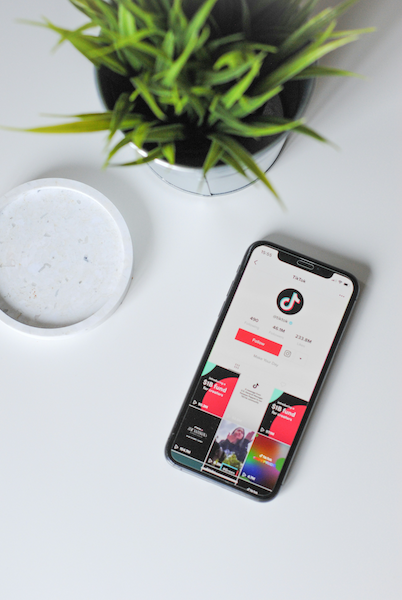Brands venturing into the African market are quickly discovering one thing: you can’t buy authenticity. You must earn it. To make a meaningful impact here, it’s not enough to show up – you need to tell the right story.
Africa’s digital heartbeat is growing louder. It’s no longer a continent on the verge of digital transformation — it’s leading it. With over $180 billion projected for Africa’s digital economy by 2025, and driven largely by its emerging youth, the entire continent is a force brands can’t afford to overlook.
Albert Makoeng, Managing Director of Nfinity Influencer Group, which holds the exclusive license rights for theSalt in Africa, obtained on the back of their successful track record with the platform in South Africa, said: ‘The power of influence in Africa is deeply rooted in storytelling. Our storytellers don’t just sell products; they share lives, experiences, and truths. And that’s what resonates.’ Since Africa has always been a continent rich in stories, it’s safe to say that today’s creators are the modern-day cultural narrators. They’ve traded fireside tales for Instagram posts and TikToks, but the essence remains the same — connection, credibility, and truth.
Africa’s youth, at the forefront of this digital revolution, are not just embracing technology — they’re redefining how it’s used. Unlike other regions where digital trends often follow established patterns, young African influencers are creating entirely new paradigms. They’re blending entrepreneurial spirit with community-driven engagement, turning mobile-first media into dynamic spaces for commerce, activism, and cultural expression. Their ability to seamlessly integrate social issues and commerce into storytelling gives them a distinctive edge.
‘Brands that come to Africa with a cookie-cutter approach miss the mark,’ said Makoeng. ‘What works in Europe or America doesn’t necessarily land here. You have to invest in real relationships, in real stories. That’s how you influence in Africa.’
Real Stories, Real People
By partnering with local creators who are already living the brand, marketers can ensure their message is not just heard but felt. With this in mind, brands can get into the raw tapestry of a culture, and bypass the sales noise, and get straight to what matters: authentic connections. ‘In Africa, influence isn’t about the loudest and glossiest voice; it’s about the most trusted,’ said Makoeng.
It’s not just about reach; it’s about impact. Brands can tap into local creators across the continent. By doing so, they’re not just selling products. They’re embedding themselves into the cultural conversations of these regions, making the brand part of daily life. The youth, increasingly digital-first, play a pivotal role in these conversations, driving the culture forward.
Cultural Context As A Strategic Asset
Africa’s cultural diversity is a powerful advantage for brands willing to invest the time to understand and embrace it. Every country, from Ethiopia to Mozambique, presents its own unique blend of traditions, values, and digital habits. ‘In Africa, context is everything,’ said Jhene Nel, Divisional Head of Sales at theSalt. ‘It’s not just about reaching the audience, it’s about speaking their language, respecting their customs, and building your brand’s story into the local narrative.’
By tapping into regional nuances, brands become a visible part of the culture. This cultural fluency is what separates campaigns that resonate from those that fall flat.
Winning The Digital Game In Africa
In Africa, storytelling has always been more than entertainment; it’s a way to pass down values, preserve heritage, and build connections across generations. Whether through folktales or modern digital platforms, the essence remains the same — capturing hearts through stories.
‘In the African market, trust is currency. And those who control the trust, control the conversation. It’s why creators, not brands, are shaping the media landscape. They are the ones with the audience, with the trust, and with the power to make a product more than just something to buy. But something to believe in,’ added Nel.
Makoeng and Nel share six of theSalt’s most trusted influencer marketing techniques for optimised African reach:
Leverage Local Voices
Don’t try to speak for African consumers. Engage those who are rooted in their communities. The most trusted influencers are those who understand their audience’s daily lives.
Focus On Real Fans, Not Just Big Names
The closer you are to the source of influence, the more credible your message becomes. Brands should use real fans as a source of influence to build genuine trust.
Don’t Aim For One-Size-Fits-All
Africa is a continent of many stories, each with its own culture and nuances. Work with influencers who can tell your brand’s story in a way that each specific market will resonate.
Embrace The Power Of Vernacular Content
Africa’s linguistic diversity is one of its strengths. Influencers who create content in local languages (such as Zulu, Swahili, Yoruba, or Amharic) can connect with communities in a way that feels familiar, making messages more relatable and impactful.
Utilise Mobile-First Marketing
Africa is a mobile-first continent, with the majority of users accessing the internet through their phones. Campaigns should prioritise mobile optimisation, ensuring content is easily digestible for the mobile market, from vertical videos to mobile-friendly platforms.
Adapt To Emerging Trends Like Social Commerce
With platforms like TikTok and Instagram joining social commerce, brands should integrate shoppable posts and livestream commerce to tap into the purchasing power of African consumers. Influencers who combine storytelling with easy shopping experiences can drive both engagement and conversions.
THESALT
www.thesalt.co.za










